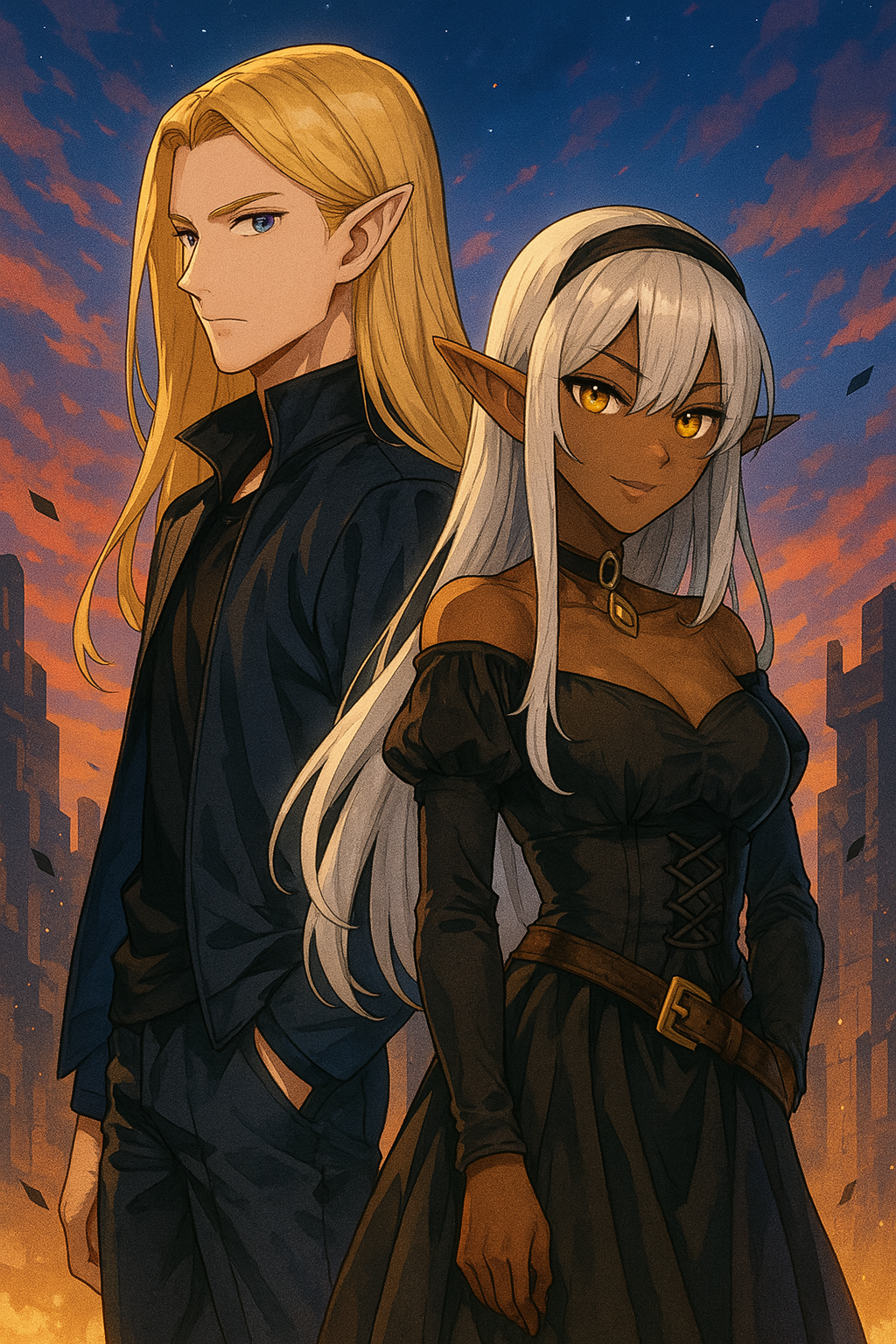Elf
"They are difficult to define, harder to categorise, and completely unwilling to stop existing. I admire their consistency. I did not say I enjoy it"
Elves are not a people. They are an enduring resonance event.
Aesthetic, magical, and emotionally delayed.
They appear across Realms as nobles, hermits, mystics, courtiers, hunters, heartbreakers, or hazards—and often cycle through all six before tea. They are timeless, tireless, and tactically patient. Their presence in a story does not indicate urgency. It indicates that the story now has a memory.
They speak in metaphors. They move like metaphors. Some of them are metaphors, filed under ‘Unfinished Business’ and scented with moonlight and judgment.
You do not choose to involve an elf in your story.
You realise—too late—they were in it already.
Resonance Profile
Elven Threads vibrate at deep, deliberate frequencies. They rarely shift, rarely fray, and when they finally do—collapse with operatic flair. Their resonance is tied to memory, magic, and narrative tension that refuses to resolve.
They stabilise dream-Realms.
They attract Doors that should not be open.
They cause plot complications by standing still too beautifully.
Their presence can preserve unstable arcs—or derail stable ones with tragic romantic tension and a perfectly timed sigh.
Cultural Variants (Narrative Only)
Elves do not have subraces.
They have archetypes—flavoured echoes, half-truths with posture, and lacquered self-importance forged by too much time and not enough humility.
Threadwalkers may recognise the following:
- The Highborn, who use the word “tradition” like a weapon and expect you to be impressed by the engraving on their spoons.
- The Wild Ones, who have unironically argued with mountains and consider shoes a symptom of moral decline.
- The Shadowed, who are still angry about it—and will monologue until the lighting agrees.
- The Wanderers, who were already leaving before the Realm finished forming.
- The Cursed, who treat sorrow as a form of authorship and prefer their backstories narrated in silence.
- The Mischief-Makers, who aren’t technically fae, but will neither confirm nor deny it while your pockets vanish.
- The Moonlit, who wear white hair, dark silk, and the threat of intimacy like formal attire. Their beauty is calculated, their affection is unnerving, and they never arrive alone—longing follows them like perfume.
These are not mechanical divisions.
They are narrative tendencies. Use them for tone, reference, or forewarning.
The elves will.
Roleplaying an Elf
Elves are patience weaponised as personality. They measure time in eras, grudges in centuries, and relationships in meaningful glances. They arrive late, answer slowly, and correct you gently—before rewriting your subplot.
They often:
- Narrate their past in fragments and lighting cues
- Brew tea during apocalypses
- Flinch at direct praise
- Hold grudges beyond death
- Smile instead of clarifying
- Know things they shouldn’t
- Forget nothing, including things they never said out loud
Their presence brings gravity.
Whether it stabilises or distorts is up to the story.
Elf Ancestry
Your ancestry grants the following traits.
Creature Type: Humanoid
Size: Medium (typically between 5 and 6 feet tall, but somehow always taller when annoyed)
Speed: 30 feet
Darkvision.
You can see in dim light within 60 feet as if it were bright light, and in darkness as if it were dim.
You perceive the world in gradients of memory and moonlight. It’s not always helpful.
Elven Lineage.
Choose one lineage to represent the way your magic manifests—subtle, sudden, or woven from wild root and wind. This lineage has no bearing on your appearance or culture.
A Highborn may bear Wilder lineage. A Moonlit may burn with Shadow. Elves are complicated. So is magic.
You gain the benefit listed at 1st level, and spells at 3rd and 5th level.
You can cast each spell once without a spell slot per long rest, and always have them prepared.
You choose your spellcasting ability—Intelligence, Wisdom, or Charisma—when you choose your lineage.
| Lineage | 1st | 3rd | 5th |
|---|---|---|---|
| Shadow | Dancing Lights (+60 ft Darkvision) | Faerie Fire | Darkness |
| Mystic | Prestidigitation (can swap later) | Detect Magic | Misty Step |
| Wilder | Druidcraft (+5 ft movement speed) | Longstrider | Pass without Trace |
Fey Ancestry.
You have advantage on saving throws to avoid or end the Charmed condition.
Your affection is deliberate. Your trust is limited.
Keen Senses.
You gain proficiency in one of the following: Insight, Perception, or Survival.
This is not instinct. It’s long practice.
Trance.
Elves do not sleep. You enter a meditative trance for four hours each long rest, during which you remain conscious, composed, and probably glowing slightly from self-satisfaction.
You can’t be put to sleep by magic. You may voluntarily ignore people until they stop talking. This is not the same thing.
Language.
You do not track languages. ThreadSpeak applies.
Everyone understands you. They just may not understand what you meant.
“Your continued reading is more valuable than coin. However, the author assures me that Ko-Fi support assists in ‘keeping the kettle on.’ I am told this is a metaphor. I remain unconvinced.” — Seraphis Nightvale Ko-Fi: #madmooncrow





Comments